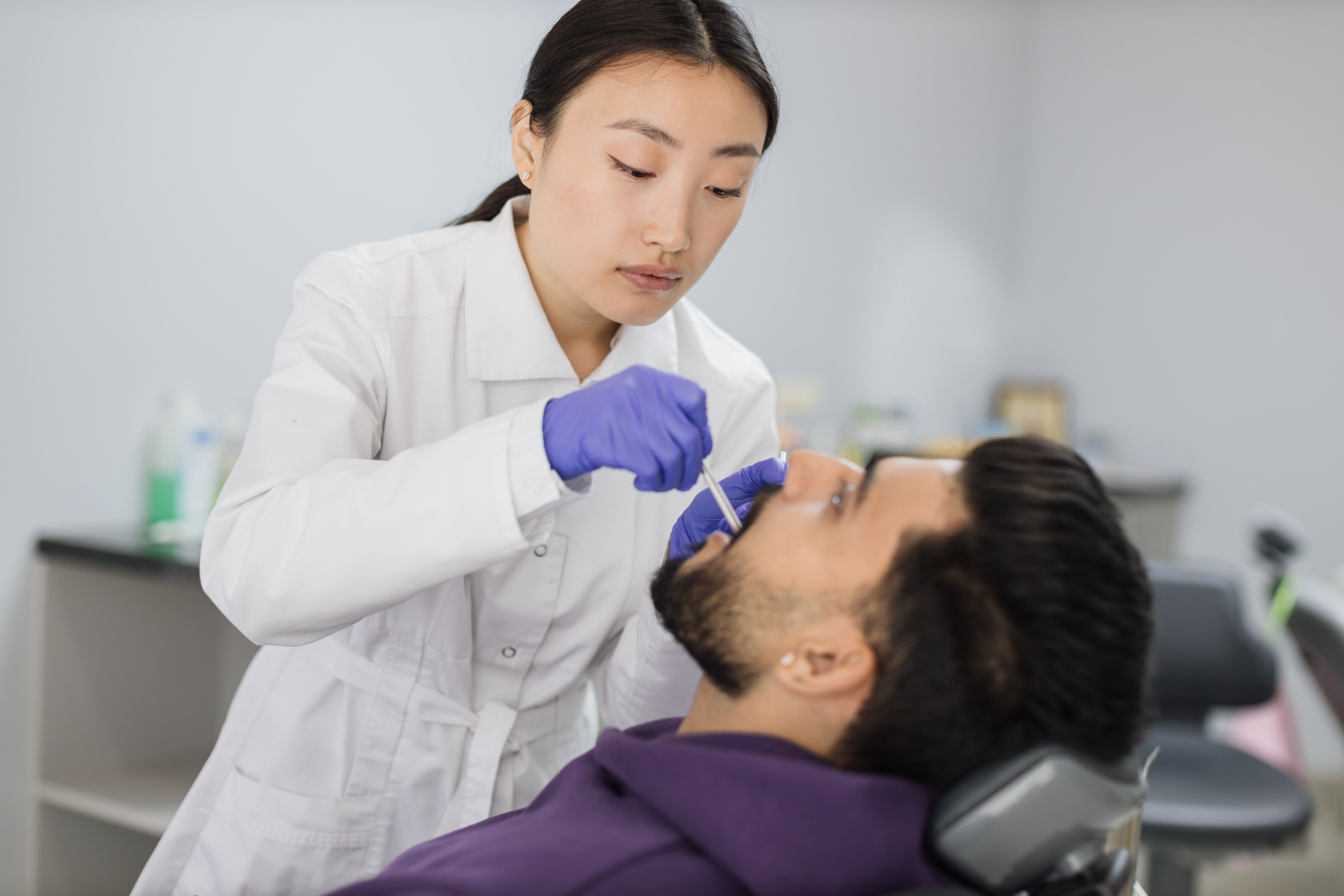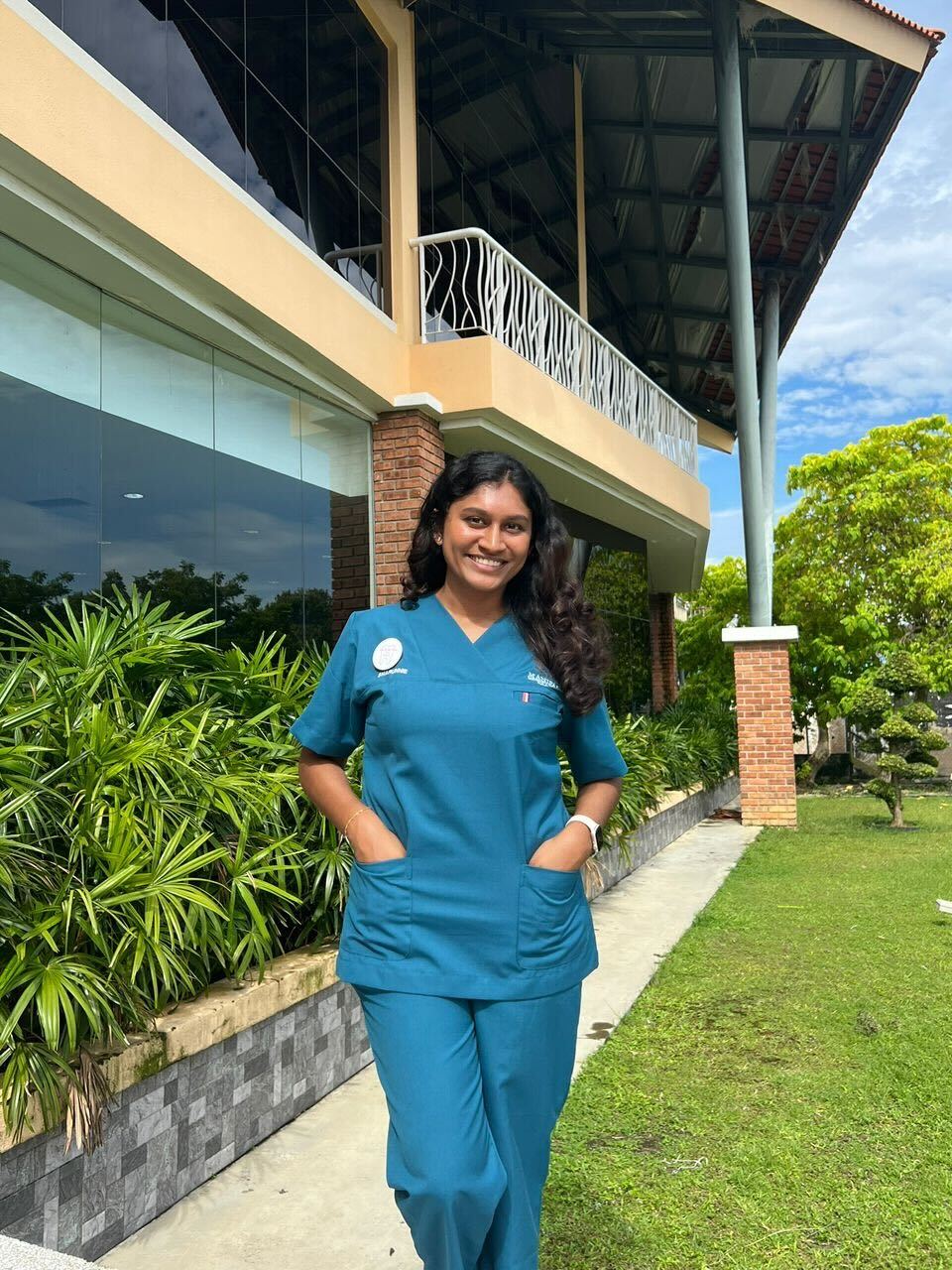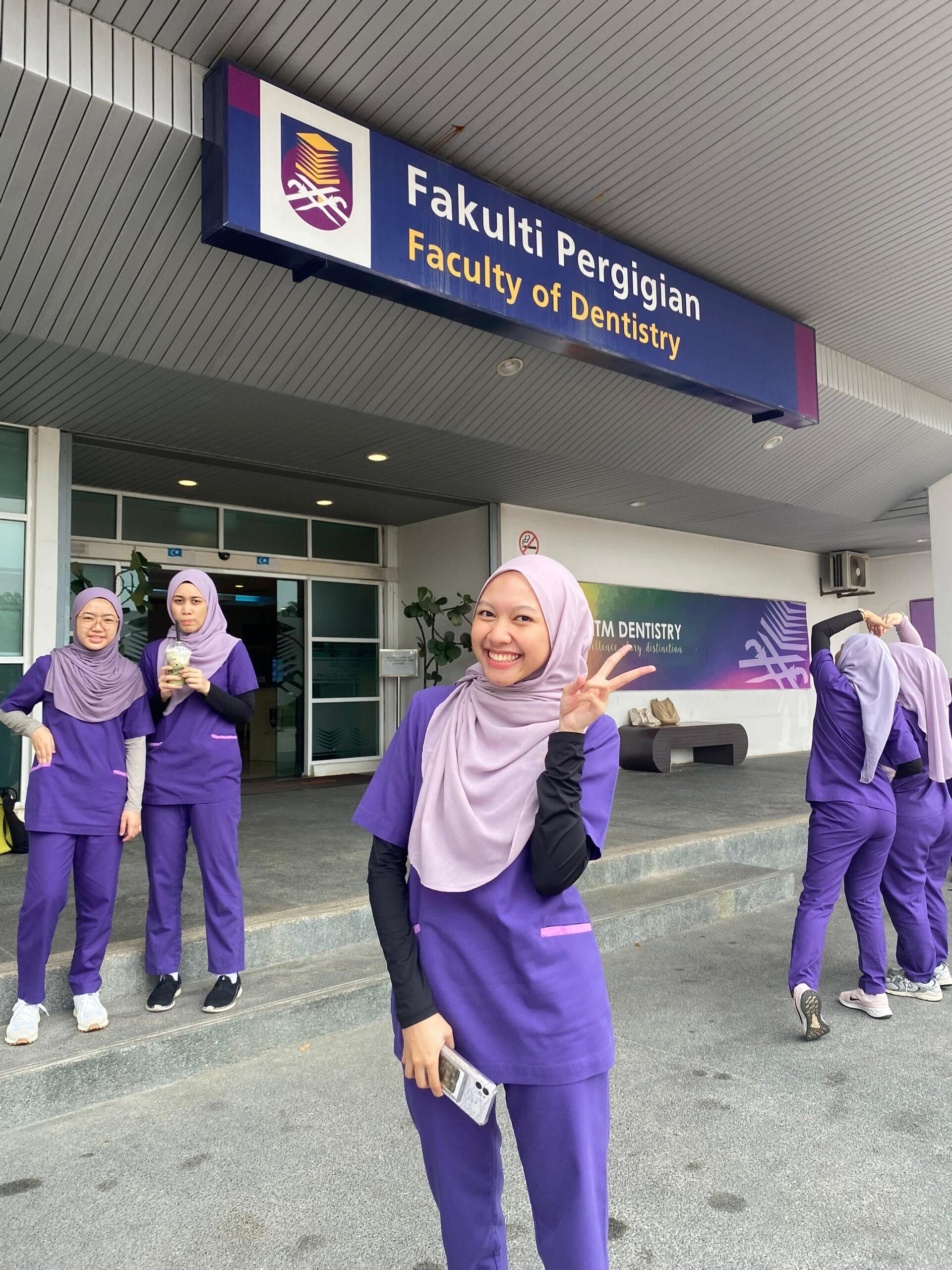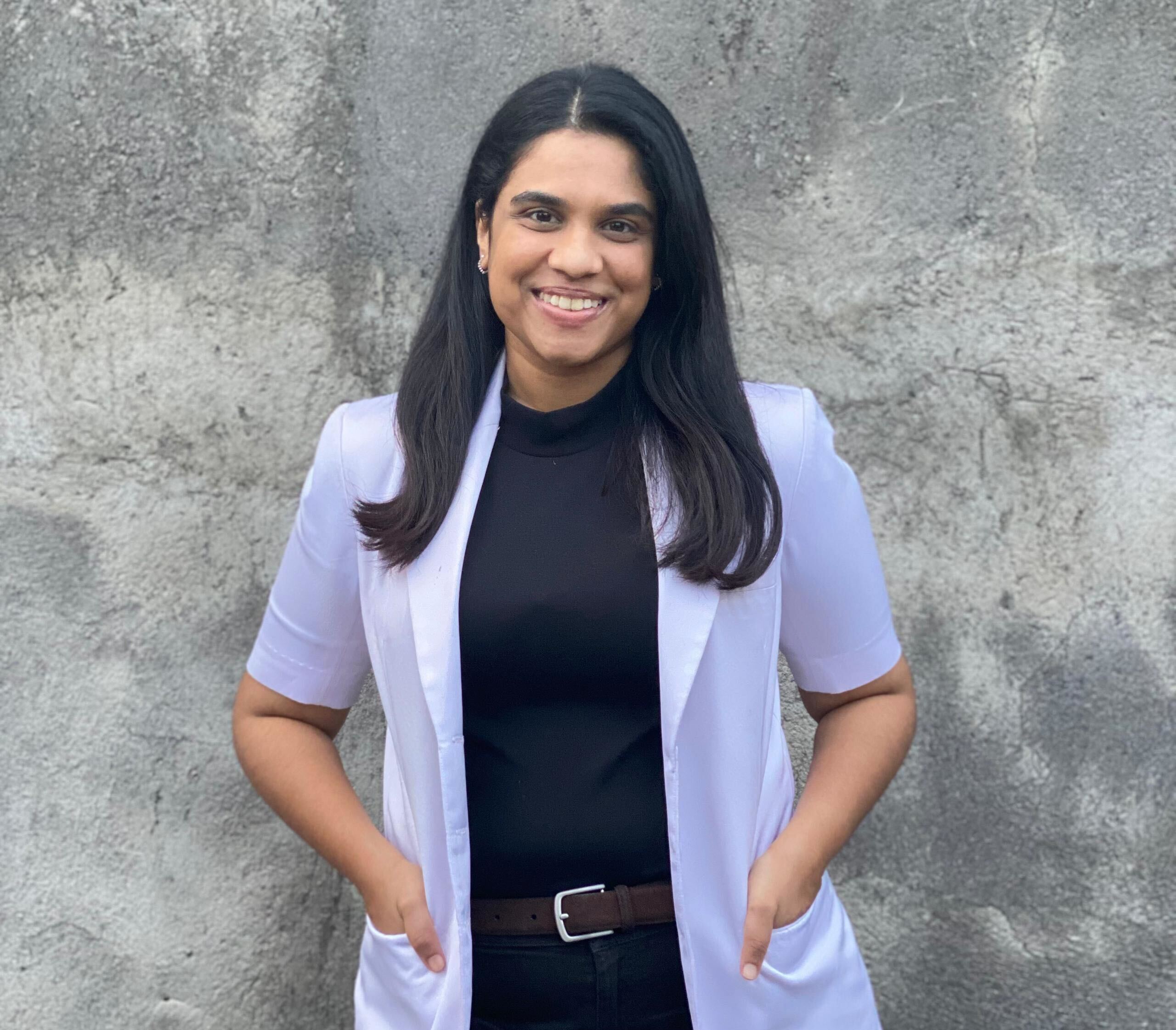The Heart of Dentistry: Stories that Inspire the Next Generation of Dentists

Dini Qistina Rashid
October 10, 2025
Think dentistry is all about fixing cavities? Think again! This article dives into the real stories behind the smiles, featuring inspiring dental students and practitioners who prove that dentistry is about so much more than teeth.
Dentistry is More Than Teeth: It’s about empathy, building trust, and making a real difference in people’s lives, far beyond just fixing cavities.
Personal Growth Through Challenges: The journey to becoming a dentist is filled with personal transformation, from overcoming doubts to developing technical expertise and emotional resilience.
The Importance of Patient Connection: Successful dentists go beyond technical skills; they build deep connections with their patients, tailoring treatments to individual needs.
The Future is Full of Opportunities: With new technologies and specialisations emerging, the field of dentistry is evolving, offering exciting career paths and opportunities for innovation.
Most of us only think about visiting the dentist when pain strikes. But what if dentistry were never just about fixing a toothache? What if it were about rebuilding confidence, nurturing empathy, and protecting health in ways you never imagined? For these students and practitioners, dentistry is not just a profession, but a whole journey anchored in compassion, purpose, and impact. Here’s their story.

From a Childhood Dream to a Real-Life Profession
Not everyone knows their calling from a young age. For some, it’s clear from the start; for others, it unfolds through exploration and self-discovery. Along the way, they discover where their passion truly lies, and how they can pursue a career that is both of their interest and helps make a difference in the world.
For Sharony Thomas, also known as Sharunnie, a fourth-year student at Manipal University College Malaysia (MUCM), dentistry wasn’t always the dream. Initially, she was drawn to pharmacy, captivated by her love for chemistry and maths. The subjects had felt like the perfect fit for her. But as she began to explore the field, Sharunnie quickly realised that pharmacy was just not her calling. “Pharmacists don’t interact much with patients, and I couldn’t see myself just standing there giving out medicine all day,” she reflects. As an extrovert, having that profound interaction with other people is what makes a career all the more thrilling. So she then found herself torn between her initial expectations and a growing sense of discontent.
The moment of clarity came when she started working at a dental clinic. That was when she realised the weight of dentists’ responsibilities, and how a single check-up can change everything. The ability to connect with patients and provide care that made a difference ignited something in her. As she observed the daily interactions between dentists and their patients, she felt an overwhelming desire to help and be part of something more fulfilling.
Though she’s still early in her studies, Sharunnie already envisions a future where she can practice dentistry independently. This is what she looks forward to the most in pursuing a career in dentistry: her educational background finally being put to use: doing dentures, restorations, extractions, and hands-on patient care.
Her advice for anyone considering dentistry is simple: “Choose wisely and follow your instincts. If you’re truly passionate about dentistry, go for it—you won’t regret it.” When Sharunnie decided to pursue dentistry instead of pharmacy, she just felt it in her bones. There was no explosive incident that pushed her into dentistry. She just knew.

On the other hand, Nur Bahirah Athirah, now a graduate from UiTM Sungai Buloh, has always dreamed of becoming a dentist. What started as simply playing dentist simulator games for fun quickly turned into a deep fascination with the field. "I was always fascinated by how much impact dentists could have on a person’s life," she says, reflecting on her early interest. Starting at just 19, Bahirah entered the field with an uncontainable enthusiasm, ready to dive headfirst into her dream. "Entering as a teenager and graduating as a young adult at 24 was a transformation that shaped me in ways I never expected," she shares.
However, it wasn’t all smooth sailing. Bahirah admits that her journey was a rollercoaster of emotions, with moments of doubt and exhaustion. "It was tough to keep that same spirit throughout five challenging years," she confesses. "Still, I genuinely believe I grew into a completely new version of myself." Her growth was deeply personal, as she faced the highs and lows of dental school, pushing herself beyond limits she once thought were unreachable.
A defining moment in her journey, Bahirah recalls, was her internship experience. "We are only eligible to go through internships right after we unofficially graduate from dental school, while waiting for our posting known as NDOP (New Dental Officer Programme)," she explains. "At this stage, we’re labelled as 'GAP' doctors doing internships—essentially a walk-through of working life, oral maxillofacial surgery (OMFS) edition." This internship phase was an eye-opener for Bahirah, showing her that dentistry is an ongoing journey of perfecting technical skills. "It was such an eye-opening experience," she says. "The hands-on work, like removing wisdom teeth, felt like unlocking a new skill set. I had never experienced that level of responsibility during my undergraduate years."
While her internship definitely helped broaden her skill set, the community she sought comfort in became the beacon of her passion for dentistry. Bahirah’s time in OMFS allowed her to work alongside specialists and postgraduates, who taught her things she could never learn through textbooks. "I’m especially grateful for the passionate specialists, particularly my supervisor, as well as the OMFS postgraduates who never failed to share their knowledge with us," she recalls. "Their patience, guidance, and willingness to teach made the learning process enjoyable and motivated me to push myself further."
Reflecting on the internship and her journey, Bahirah says, “Stepping out of my comfort zone in all these ways was both terrifying and unforgettable. But looking back, it’s these moments that I’m most proud of, because they pushed me to grow into a stronger, more confident version of myself."

Dentistry Through the Looking Glass
One of the biggest misconceptions about dentistry is that it’s just about teeth. But as Niroshini Illesha Naidu, a dentist currently in private practice, points out, that couldn’t be further from the truth. "Many people think all we do is look at teeth, but in reality, there are so many different types of treatments and procedures," she says. As a family dentist, Niroshini treats patients of all ages, each with their own unique needs and concerns. Tailoring treatments to the individual—whether it's easing a child's fear of the dentist or addressing a senior patient's specific dental health needs—is no small feat. The complexity lies in connecting with each patient on a personal level and creating a treatment plan that truly works for them. It requires not only technical expertise but a deep empathy and understanding of their situation. This level of care, attention, and adaptation is what makes dentistry such a respectable and rewarding profession.

Bahirah further challenges the common myth that dentistry is an “easier” path compared to medicine. "Dentistry isn’t the 'easy alternative' to becoming a doctor," she says firmly. "It requires just as much dedication, skill, and resilience." Unlike popular belief, dentistry is far from simplistic. The oral cavity is complex and intricately linked to the rest of the body. "When people say it's easier than medicine, they underestimate the level of expertise needed," she adds. Just as Niroshini points out, Bahirah acknowledges that dentistry requires much more than technical ability. It involves a balance of expertise and empathy, making it far more complex and meaningful than many realise.
Niroshini’s experience in both private practice and government work further highlights how dentistry goes far beyond what most people imagine. "Oral cancer can start of as an unhealed ulcer that patients don’t worry much about until it gets worse," she says, illustrating how dentists are often the first professionals to detect serious health issues before they become life-threatening. While ulcers and lip cuts may seem normal at first glance, it could just be the starting point of a chronic illness. Because of its commonness, many would simply turn a blind eye, underestimating its significance, which allows the disease to further progress unchecked.
Through these insights, it’s clear that dentistry isn’t just teeth, teeth, teeth. In dentistry, the learning never stops, and every patient presents a new challenge, a new opportunity to make a difference. It’s a meticulous profession, definitely. But it’s equally rewarding and exciting in the best way possible.
The Best Part About Dentistry
Despite the complexity of every case, its rewards lie far beyond drills and dental chairs. At its core, dentistry is about alleviating pain, fostering trust, and bringing about positive change in people’s lives. For students and practitioners alike, the journey reveals a profession bound by empathy and compassion.
"Being able to relieve patients from their pain and discomfort is definitely the best thing. It keeps me going in this field,” Niroshini shares. Helping patients with dental anxiety and watching them grow more comfortable with dental treatments is another aspect of the profession that she finds deeply fulfilling. Bahirah also attests to the satisfaction of alleviating people’s pain, which is what makes her keen on paediatric dental care. We all know how common dentophobia is and how this fear contributes to the neglect of oral hygiene. Thus, Bahirah aspires to dismantle this common phobia through patience, gentle reassurance, and creating a safe and welcoming environment for her future patients.
Of course, the joy of alleviating a patient’s pain is an incomparable feeling. Still, dentistry is just as exciting as it is satisfying. What you learn in the classroom stays with you because you are constantly applying that theoretical knowledge in real-life treatments, where every decision matters and every skill is put to the test. "Dentistry, in its essence, is very much a 'learn and apply' kind of course," Bahirah says. "You don’t just sit in lectures absorbing information; you actually carry it with you into the clinics and apply it directly. Knowledge isn’t just memorised; it’s lived, experienced, and eventually, it becomes second nature.”
The Future of Dentistry
While many dental students dream of opening their own practice, the landscape is ever-evolving, which means that new opportunities are always emerging. Niroshini recognises the competitive nature of the field, noting, "Currently, in our country, there are already way too many dental clinics. In one row of shops, there could be three or more dental clinics." However, this competition is not a barrier, but rather a reflection of the growing demand for quality dental care. With the specialist-to-patient ratio in Malaysia standing at 1:15,120, there is a clear need for expertise, particularly in specialised fields. The demand is there; what’s needed is the innovation and drive to meet it.
New dental technologies, including AI that helps diagnose issues faster, 3D printing for personalised dental pieces, and advanced imaging that gives a more detailed view of your teeth, are making dental care more efficient and effective. These tools mean less pain, quicker recovery, and better results for patients. For dentists, it’s an exciting time to adopt these innovations and improve patient care. The future of dentistry is in the hands of the next generation who can embrace these changes and reshape the field.
Specialisation is no longer just an option, but becoming a necessity. As the field becomes more advanced, patients will increasingly seek out specialists who can provide the highest level of care. This is where the real opportunity lies, with specialisations like orthodontics, which focuses on aligning teeth and jaws, periodontics for treating gum disease, and oral surgery for complex procedures. There’s also endodontics, focusing on root canals and the inner tooth, prosthodontics for restoring damaged teeth, and paediatric dentistry, which Bahirah is particularly passionate about. Her dream of opening a paediatric clinic is greatly influenced by the love she has for babies and children. "My goal is to make dental visits fun and enjoyable for kids, so that they actually look forward to every check-up," she says, highlighting her vision of reshaping the dental experience for the younger generation. She acknowledges how dentophobia often stems from childhood, which can then grow into a lifelong fear that prevents individuals from seeking necessary dental care as adults. “If we introduce children to a friendly, positive dental environment early on, we can prevent dental trauma that often carries into adulthood.”
The future of dentistry is bright and full of exciting possibilities for those ready to embrace it. As the field evolves with new technologies and specialisations, there’s never been a better time to be part of this profession. Niroshini, Bahirah, and Sharunnie’s experiences show us the balance of skill, passion, and continuous learning that dentists have to embody in order to shape the next generation of dental professionals. In the end, for dentistry to truly progress, the path forward lies in cultivating specialists who bring depth, expertise, and new possibilities to patient care.



